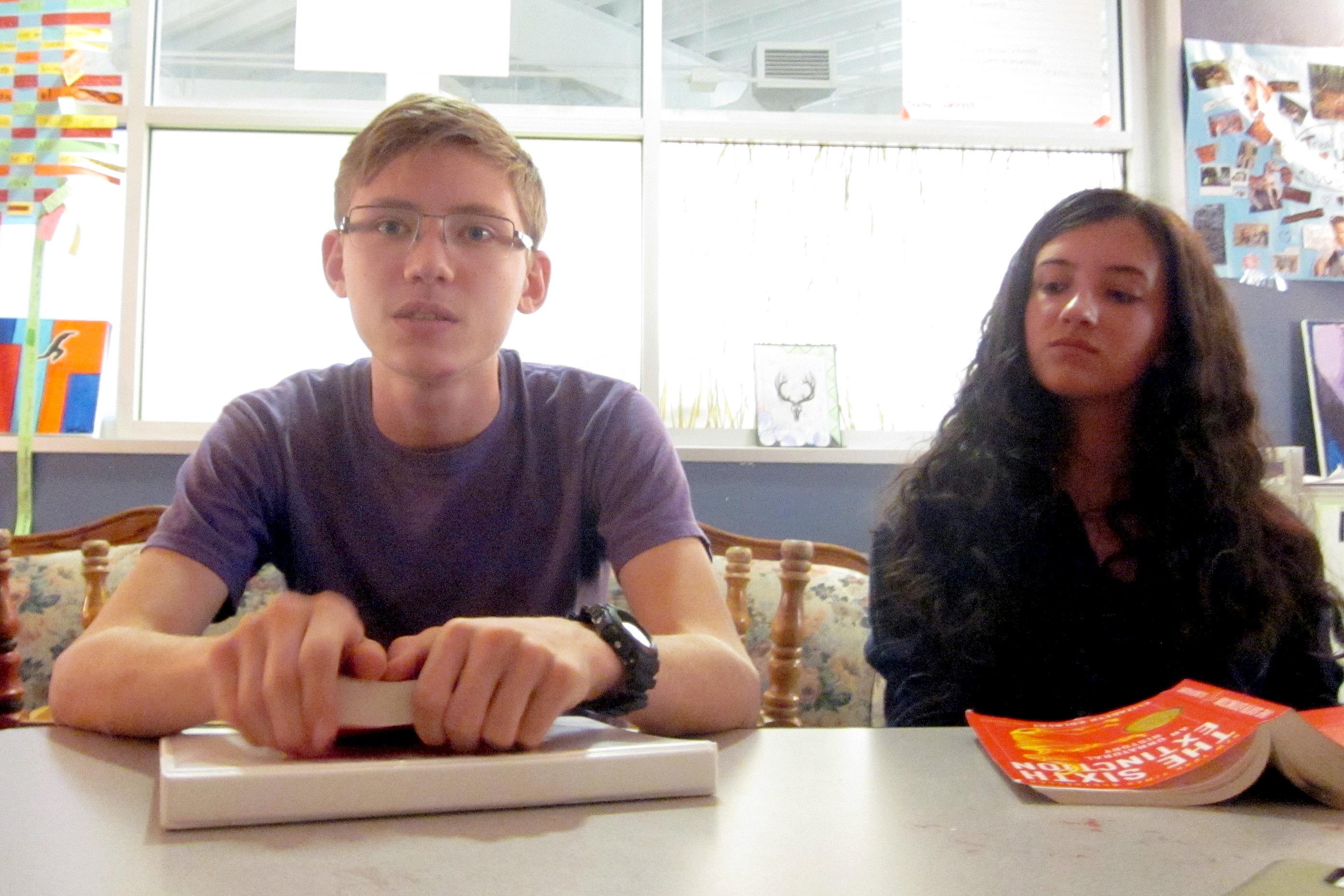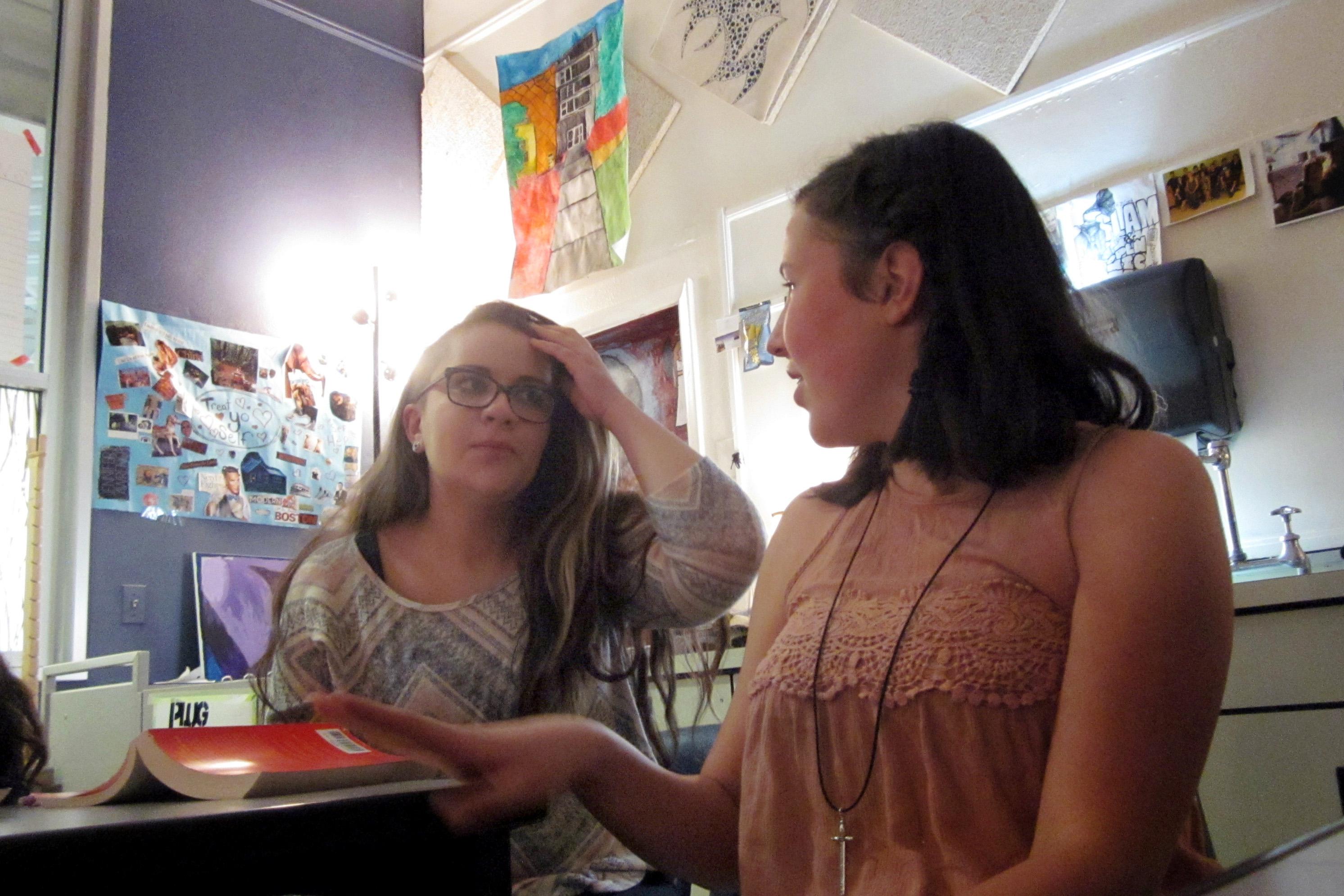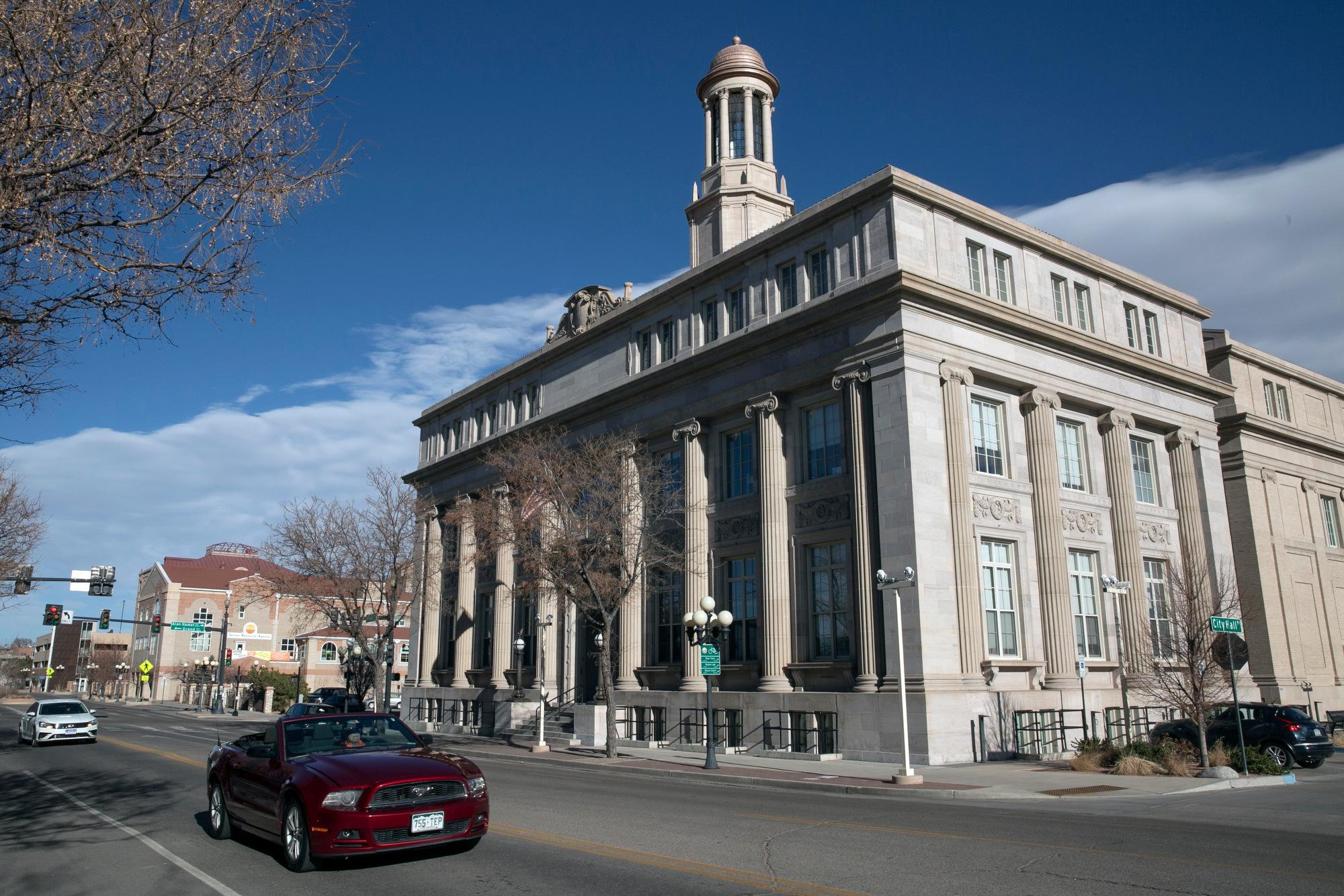
There’s a classroom in the Jefferson County Open School where students are studying one of the biggest issues on the planet. But it’s not a science classroom. It’s an English class and climate change, rapid population growth and the sudden and dramatic extinction of species all over the Earth are the topics.
“I just read the third chapter of ‘The Sixth Extinction.’ It’s called ‘The Original Penguin,’” 17-year-old student James McDermott said, as he recorded an audio diary of his thoughts on the chapter about the extinction of the Great Auk.
“It makes me think about how now, no one is really thinking about the animals they’re driving to extinction, even if they’re doing it inadvertently,” he said.

Climate change and extinction are big issues. They’re scary and controversial and sad — even for many adults. But for the young people in this English class, climate is the issue. “The Sixth Extinction” by Elizabeth Kolbert confronts what teacher Benjamin Dancer said is “the most important issue we have to tackle as a species,” which is the unintended consequences of continued population growth and the impact on the climate.
The Pulitzer Prize winning “Sixth Extinction” tells the story of species extinction through the eyes of biologists, botanists, and geologists. It’s a college-level text, so it’s challenging for these students, but the content satisfies one of Colorado’s academic standards that asks how climate change affects the Earth.
“I thought maybe we could teach this book and these issues and do it in such a way that empowers kids to rise to the challenge of their age,” Dancer said.
Chapter four of the book is about the asteroid that slammed into the Gulf of Mexico 65 million years ago. The impact is regarded as one of five mass extinction events on Earth in the past half a billion years. When the asteroid extinction theory was first posited by physicist Luis Alvarez and geologist Walter Alvarez in 1980, it was initially ridiculed. Dancer pointed out to the students that denial is a pattern. Moving to small discussion groups, he asked the class why it’s so hard for humans to recognize what is happening right in front of them.
Student Ben Kessler wonders if the challenge is a “fear of death” and the difficulty in seeing human existence as one microscopic section on Earth’s 4.5 billion year timeline. In fact, if the history of the Earth were a 24 hour clock, Kessler learned, humans would pop up in the last minute and 17 seconds. Another student pointed out that humans don’t want to put in the effort to change the way we live.
The book’s title is taken from what follows the asteroid and the other events these students are learning about. Scientists are classifying the sixth extinction as a modern, man-made mass extinction event: disappearing forests and habitat, changing climate, toxins polluting lakes, streams creating “dead zones” and oceans acidifying. Dozens of species are going extinct every day. In the case of amphibians, the students read, it’s been estimated the extinction rate could be as much as 45,000 times higher than the background or natural rate.
James McDermott, like the rest of the class, progressed through a range of emotions as he read the book. In his audio diary, he realized that at the rate of rising temperatures, current agriculture would be devastated by the end of the century.
“That starts to look apocalyptic and so it bums me out honestly, especially when I think about how little it’s talked about in politics,” he said.
McDermott said he heard almost nothing about ecology during the election.
Teacher Benjamin Dancer suspected his students might react to “The Sixth Extinction” with a sense of guilt. It’s kind of a defensive mechanism. He said his job is to give the students the analytical skills to navigate the magnitude of the issue and also reinforce that humans are an intelligent, creative people who can solve complex problems. Dancer wants them to “intellectualize” rather than “personalize” the issue. “I have to deconstruct that for them,” Dancer said. “And the way I’ve done it with this class is with math. I just turn it into numbers.”

For example, when President-elect Donald Trump was born, the world’s population was 2.3 billion. Now, it’s about 7.5 billion. Seeing the issue through the lens of population growth has helped student Leala Pourier.
“Human instinct is to protect your family,” she said. “The problem is though, there’s just too many of us doing it… So I never looked at it that way, it’s no one human’s fault, and so I started kind of processing it in a better way, where we can do something about this, we can’t just give up.”
As the students read about extinction and learn about species adaptation, some of them come to a shift in thought. Sierra Ventimiglia thinks humans, for once, should “let it be” and let the human species die out when it’s supposed to die and “not try to escape to Mars.”
“I don’t think we should be there,” Ventimiglia said, “and at one point we are going to die and there’s going to be other species that do amazing things….and we can’t think the universe revolves around us…”
This is where teacher Benjamin Dancer helped guide the students toward projects where they can make a difference: setting up sustainable food systems at school, or organizing a school-wide day of dialog on the unintended consequences of continued population growth. They talk about growing sustainable food and solar roofs. The class has helped kids put “The Sixth Extinction” into perspective.
By the end of the book, the students have read about all manner of extinction events: Those triggered by a variety of cataclysms like global-warming, global-cooling, asteroids and also, those caused by direct or indirect human effects such as hunting or rapidly increasing levels of carbon in the atmosphere. Dancer said his students got angry as they read about humans driving species to extinction. Procrastination, apathy and denial of climate change also angered them.
“Yet, on a whole they are quite hopeful, as is demonstrated by their commitment to action and their belief that they can create the world that ought to be,” Dancer said.









